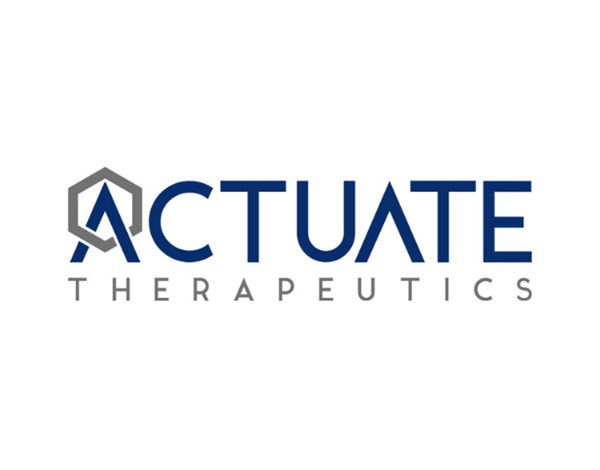 Actuate Therapeutics, Inc. has raised an additional $6.5M in a Series B-3 financing round led by Bios Partners with Kairos Ventures, DEFTA Partners, and other existing investors participating. This Series B-3 brings total funding for Actuate’s Series B round to over $28.2M.
Actuate Therapeutics, Inc. has raised an additional $6.5M in a Series B-3 financing round led by Bios Partners with Kairos Ventures, DEFTA Partners, and other existing investors participating. This Series B-3 brings total funding for Actuate’s Series B round to over $28.2M.
Actuate is a clinical stage pharmaceutical company focused on the development and commercialization of novel therapeutic agents for patients with cancer or inflammatory diseases. Actuate will use the proceeds of the financing to initiate a Phase 2 clinical trial in myelofibrosis and expand the company’s ongoing 1801 clinical trial to include an arm for treating patients with a combination of 9-ING-41 with irinotecan.
“We are very pleased with the progress we are making in the clinic with the 1801 study, and the promise of the myelofibrosis and neuroblastoma trials which we expect to initiate early in 2020.” – Daniel Schmitt, President and CEO of Actuate
“Myelofibrosis is a therapeutically challenging myeloproliferative neoplasm where we need novel approaches and where recent findings support the potential clinical benefits of anti-fibrotic therapy. 9-ING-41 has demonstrated significant activity in reversing pathologic fibrosis with attendant restoration of normal function in pre-clinical models of fibrotic diseases. In addition, 9-ING-41 has significant anti-neoplastic activity and is without clinically significant adverse events to date,” said Dr. Frank Giles, Actuate’s Chief Medical Officer. “The absence of myelosuppression with 9-ING-41 is particularly important for patients with advanced myelofibrosis for whom we are initiating the international Phase 2 study of 9-ING-41 as a single agent and in combination with ruxolitinib, the current standard of care for treatment of myelofibrosis.”
The 1801 clinical trial was designed as a histology agnostic study with seamless extension from the investigation of single agent therapy to that of six different 9-ING-41-based combinations with standard-of-care chemotherapeutics. The initial combinations were prioritized based on evidence of reversal of resistance to key cytotoxic agents in diverse pre-clinical models. The design has proven to be efficient and highly productive, with over 70 patients enrolled since the start of the study in January.
“Key data from the 1801 study on the pharmacokinetics of, tolerability of, and clinical responses to 9-ING-41 have been very rapidly developed in the context of vigorous accrual by our investigators,” said Dr. Ludimila Cavalcante, Actuate’s Lead, Medical Affairs. “Adding irinotecan as a partner agent to 9-ING-41 will significantly expand the options we can offer patients being treated on the 1801 study, particularly those with advanced gastrointestinal cancers. Data on adults receiving 9-ING-41 combined with irinotecan will also inform the optimal design of our planned studies in children and adolescents with neuroblastoma.”
“We are very pleased with the progress we are making in the clinic with the 1801 study, and the promise of the myelofibrosis and neuroblastoma trials which we expect to initiate early in 2020,” said Daniel Schmitt, President and CEO of Actuate. “We are also pleased with the ongoing support of our investors in the Series B financing, which allows us to continue this important and promising work.”





